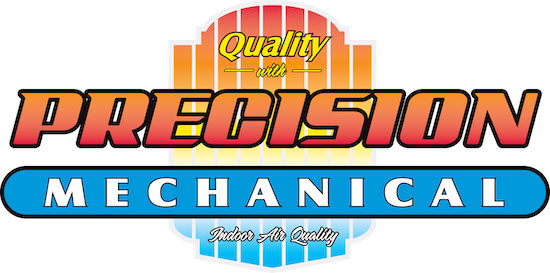
If you want a fulfilling, successful career, check out a career in heating, ventilation and air conditioning. HVAC is an excellent place to start, according to the U.S. Bureau of Labor Statistics, which predicts careers in this industry will grow by 13 percent by 2028.
It's easy to see why these careers are continuing to grow. One is federal incentives to upgrade to more energy-efficient comfort systems. It's also important to consider R-22 Freon® coolant, which impacts older equipment. Finally, there’s the red-hot real estate market and a property shortage that’s spurred further growth in new construction homes.
You can join this rewarding industry by becoming an HVAC technician. Learn more about their skill set, how to become one and about how much you can expect to make.
What Does It Mean to Be an HVAC Technician?
A HVAC technician should be able to repair, install and maintain heating and cooling systems. Most technicians will earn experience on equipment in both homes and commercial properties. And, most important, you’ll be knowledgeable about:
- Air conditioners
- Furnaces
- Mini-splits and heat pumps
- Thermostats and home zoning
- Indoor air quality equipment like air filters and air purification systems
Some are HVAC-R technicians, and they are further trained to provide refrigeration.
Is There a Shortage of HVAC Technicians?
Experienced HVAC technicians are increasingly sought after because of shrinking labor force within the industry. There are several reasons for this discrepancy, including an aging workforce and competition from other industries. There are also more young people seeking college degrees as opposed to a licensed trade like HVAC.
Is HVAC a Hard Career?
While HVAC often requires physical exertion, it can still be quite gratifying. As a technician you'll be expected to occasionally:
- Work in awkward settings, like tight or messy spaces.
- Work in hot or cold areas since equipment is often outdoors.
- Work evenings, weekends and overtime during peak demand.
A stubborn falsehood about HVAC is that it’s a blue-collar career. It requires a specific skill set, specialized education and periodic recertification.
It’s a great career choice if you want to:
- Avoid a lot of student debt.
- Work outdoors instead of in an office.
- Have job security knowing your position can’t be outsourced.
- Become your own boss and own your own successful business.
Is HVAC a Stressful Job?
You can't fully escape stress when on the job. HVAC technicians handle complex equipment and will occasionally have to endure cramped or uncomfortable working conditions. The proper experience and tools can help address any concerns. In addition, paid training and a stable workload help HVAC professionals fend off some of the most common sources of work-related stress.
Is HVAC Hard on Your Body?
Lifting heavy items and performing repetitive motions are both common during HVAC work. Accessing and servicing large equipment can be tiring. HVAC projects are often physical, and you may benefit from a healthy diet and exercise regimen to remain as healthy as possible.
Are HVAC Careers at Risk Because of a Recession?
While a recession can affect any industry, HVAC is particularly resilient due to the sheer popularity of heating and cooling equipment. Repairs and installation will always be needed, which means apprentices and master technicians alike can often find work in many different cities.
Is HVAC a Good Career for the Future?
As climate control technology continues to evolve, reliable expertise will become even more important. Newer models of heating and cooling systems need less energy or obtain it from renewable sources including solar and wind. Greener HVAC equipment will continue to grow in popularity, as will the need for experienced installers and technicians.
How to Become an HVAC Technician
To learn everything you need to become an HVAC technician, you’ll need a high school diploma or GED as well as industry training. Other, more specialized (and higher paying) HVAC careers typically need additional education or certifications.
You can become certified by taking classes at a community college or trade school. How much time is needed to become an HVAC technician may fluctuate depending on the specific program, which generally lasts between six months to two years. An HVAC company will sometimes also require NATE certification. Standing for North American Technician Excellence, this key accreditation expands your technical knowledge to help you better serve customers.
Even though basic concepts of an HVAC career could be learned on your own, professional development means blending classroom programs with on-site training. At the same time, HVAC careers aren't reliant on things like advanced math. While a little math is needed, the bulk of an HVAC professionals’ skill set relies on critical thinking, used to identify problems and ensure quality installation.
Career Explorer reports that technicians familiar with tablets, electronics and troubleshooting will be in big demand as equipment becomes capable of even more.
Another benefit of working in HVAC is next to no student debt.
According to Midwest Technical Institute, signing up for classes at a technical or trade school generally costs approximately $15,000. A community college is usually around $5,000 per year. In comparison, the average student debt for a bachelor’s degree is $25,921.
A Daily Schedule as an HVAC Technician
Your work schedule may vary on the work site as well as your specific skill set. If you primarily offer repair services, you may work early, late or be on call throughout the day. For technicians or installers working in construction, you will be more likely to keep to a set schedule during normal business hours.
As a technician, you’ll respond to different locations for repair, maintenance or installation work. Complex jobs might take longer than others, so the number of calls you can go on may vary.
As we mentioned before, you should expect the occasional job in extreme weather as well as in dirty or cramped spaces. For roles assisting customers, strong customer service skills are always useful.
Do HVAC Careers Offer Good Salaries?? Average Salary for HVAC Technicians and Other HVAC Careers
With the constant growth in HVAC careers, your salary will reflect it. The national average salary for an HVAC technician is $49,242, according to ZipRecruiter. Top earners make between $56,600 and $68,000. Having said that, your salary may be dependent on the area's average wages and its cost of living. HVAC techs with enough experience to work in management in a high-paying state could make upward of six figures.
Along with starting your own business, there are several other career opportunities. These include:
- HVAC manager, $72,515 average salary
- HVAC service manager, $71,176 average salary
Types of HVAC That Pay More
There is a lot of room for specialization in the HVAC industry, and continuing education and certification opportunities open doors for niche positions with great salaries. For example, master engineers with experience designing custom equipment or leading projects could earn six figures annually. Larger salaries are also more likely if you have experience with advanced equipment like commercial HVAC systems, geothermal heat pumps or radiant in-floor heating.
What States Need HVAC Workers the Most
HVAC technicians are in high demand across the United States, but particularly in states like Florida, California, Texas, New York and Illinois. According to hvacclasses.org, these states need the most HVAC work and are experiencing major construction growth. Here’s why:
- Florida: Hurricanes, education and healthcare facilities.
- California: Wildfires, transportation, energy and utility projects.
- Texas: Hurricanes, energy, utility and other infrastructure upgrades.
- New York: Residential and infrastructure updates.
- Illinois: Companies relocating to the Chicago area.
Where HVAC Technicians Will Be in High Demand in the Future
Projections Central, who develops long-term occupational projections, expects these states to have the greatest demand for technicians by 2028:
- Utah, 31.1%
- Colorado, 29.7%
- Nevada, 27.9%
- Arizona, 21.4%
- Iowa, Oregon and Montana, 18.5%
- Arkansas, 16.3%
- Florida, 16.2%
- South Carolina, 16%
- Texas, 15.9%
- Idaho, 15.7%
- Washington, 15.6%
- North Carolina, 15.5%
- Tennessee, 15.2%
- Wyoming, 14.3%
- Nebraska, 13.9%
- Indiana, 13.8%
- North Dakota, 13.8%
Here’s where the highest number of new positions during that time frame are expected to be:
- Florida, 5,420
- Texas, 5,530
- California, 4,100
- North Carolina, 2,510
- New York, 2,290
- Colorado, 2,000
- Ohio, 1,550
- Pennsylvania, 1,510
- Virginia, 1,500
- Tennessee, 1,360
- Washington, 1,290
- Georgia, 1,270
- New Jersey, 1,170
- Utah, 1,170
- South Carolina, 1,1060
- Indiana, 940
- Maryland, 820
- Missouri and Arizona, 810
- Michigan, 780
Weather and a healthy economy is anticipated to fuel growth in these states, according to hvacclasses.org.
Grow Your HVAC Career with Precision Mechanical
HVAC technicians remain in demand across the country and in Rapid City. To learn more about our openings, visit our careers page or call us at 605-206-3766 today!













